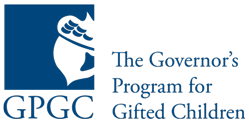Here are some reports from the teachers of each of our Science classes for the first two weeks of the Program. We have organized them by class:
Freshmen Science (Mr. Jimmy Newman, Instructor)
Week One
The freshmen science students learned about the nature of science by working together and alone to experience inductive and deductive reasoning, the need for motivation to do science, generating data, collecting data, interpreting the data, the importance of communication of this data, and respect for others especially in their findings. These things were accomplished through the historical studies of Thales, Democritus, Ptolemy, Galileo, and Newton. The students discovered patterns in activities and drew conclusions from these patterns. They were exposed to the wrong conclusions (logical fallacies) just as Ptolemy was. They were tested on the scientific method.
Week Two
The freshmen science students learned about how people can be mistaken so easily by completing the Dragon Illusion. We also discussed the 3 laws of motion and we did a ‘Story with Holes.’ The week ended by us going into Starlab Planetarium for 2 days and we looked at constellations, Greek Mythology, colors of stars and temperature, how to read star maps, the living cell, faults and ridges of the planet earth, the continents of the globe, and Native American constellations. Take a look at the pictures below.
Sophomore Science (Mr. Justin Higginbotham, Instructor)
Week One
All of the students were very productive and attentive this week! We investigated some chemical properties of various metals and used a flame test to observe the color of these metals in an excited state. Students worked in groups to design an experiment and identify unknown metal compounds. Students then prepared formal lab reports and use peer review techniques to critique lab reports.
Week Two
Students investigated the effectiveness of various antacid tablets and participated in the peer review process of lab reports.
Senior Science (Dr. Linda Brannon, Instructor)
Week One
For the Seniors, Week 1 was devoted to choosing the area in which they plan to complete their senior projects and forming plans to proceed. The first day of class was devoted to exploration of students’ ideas for science projects and my evaluation of how feasible those ideas were. (Similar discussions occurred for other areas.) Six of twelve students chose science projects, and all have feasible ideas that they are working to develop.
The students also completed a pre-test to allow me to know the status of their science knowledge and to assess their progress at the end of the session. Lecture and class discussion will cover material on this test to allow students to develop their understanding of terminology in science as well as the processes involved in conducting research.
We split the week with lectures and discussions of terminology and history of science and developing the ideas for senior projects. One part of that development involved developing a background, and I found a background study that relates to each of the projects to get students started in understanding past research on their topics. Another way in which students progressed with projects was writing a brief description of the proposed study.
Week Two
Week 2 was devoted to covering background in science to bring all students to a correct usage of terminology and to explore various research methods. We discussed the history of science, from beginning to the present, then reviewed the scientific method, talked about descriptive research methods, and finished with experimental methods. I presented the challenges and advantages of various choices, tying the discussion to students’ projects to give them suggestions about developing their studies. Students completed a worksheet for a grade, and everyone did well. I handed out a second worksheet that is due on Monday.
On Friday, we visited the McNeese Animal Behavior Lab (rat lab) to introduce students to the equipment and procedure for collecting data in this setting.







